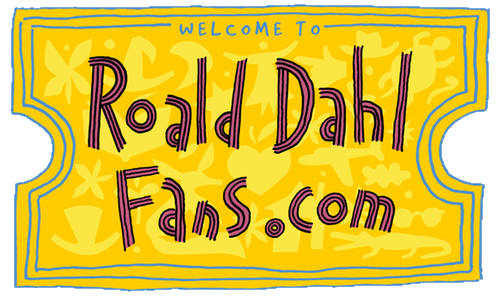The following paper was written by Kristie Hand for a college English class in 1991. She was kind enough to allow me to post it for visitors to this website to enjoy. Please DO NOT copy any part of it and claim it as your own. That would be ILLEGAL and both she and I would be very angry. If you’d like to contact her to comment or ask questions, her email address is laughing_cat@yahoo.com.
If you have an essay that you’ve written that you’d like to share, send it to me!
Message from the Author:
“I hope you enjoy my paper. I wrote it for a “Writing in Humanities” class at Brigham Young University when I was a sophomore there in 1991. The topic was “heroes.” It is a paper that is dear to my heart because Roald Dahl’s books have such a special place there. If you haven’t read Danny the Champion of the World, I highly recommend it. I still open up my 15-year-old, battered copy every once in a while.”
without the author’s written permission.
Thank you.
“My Hero”
Roald Dahl is my hero–it’s that simple. As a child I would read his books and, before I knew what had happened, I was living in a gypsy caravan in the English countryside. With a backdrop of green, rolling hills, I went kite flying, rode a home made go-cart and watched a fire balloon soar majestically through the sky. Roald Dahl’s words breathed life into my dreams.
The most consistent story line in Roald Dahl’s books is the relationship he draws between children and adults. He treats them as equals, creating characters who are either children with high morals and deep concerns, or adults who are wildly adventurous and young at heart. Because of this style of writing, Roald Dahl magically conjours up stories that have a child as the central character and one or more adults as supporting characters.
I have read fifteen of Roald Dahl’s books and my favorite is Danny, the Champion of the World. The relationship that Danny has with his father is so close that is has continued to stay with me. As a young child living in a single-parent family I was significantly affected. To state it bluntly, I was incredibly jealous of Danny, although he came from a single-parent family too. Yet how I longed for a father like his who was always there, always listened and always took part in his child’s life. I knew it was only a fictional book, but the potpourri of emotions within me was very real.
I was eleven when I first read Danny, the Champion of the World. Since then, I have wondered where Roald Dahl found his model for the perfect father. Did he have a father who took him on exciting excursions? Was his father a wonderful storyteller who told him bedtime stories about dream-collecting giants? Or could it be that Danny’s father was an image of what Roald Dahl wished he had?
Last summer I read Roald Dahl’s autobiography, a children’s book entitled Boy, in which he recounts his own childhood experiences. While reading this book I discovered where my favorite author had found the personalities for many of his characters, such as Danny’s schoolteacher and the vicar’s wife, who resemble two of Roald Dahl’s own teachers.
Yet amid these conclusions, the questions about Danny’s father still remained. Roald Dahl was but three years old when his own father passed away. Upon reading this information I quickly checked the fourth chapter of Danny, the Champion of the World. Danny is not much older than that when he discovers a deep, dark secret about his father–a secret that takes Danny on the adventure of a lifetime.
I finally understood why the relationship between Danny and his father had touched me to such a high degree. Roald Dahl’s book about the world’s most exciting and loving father and simply picked up where his own childhood left off. He had created the image of a father he barely knew.
Roald Dahl was obviously pleased with the outcome of Danny, the Champion of the World, so pleased, in fact that he recycled bits and pieces of the story to produce two more books. The BFG, another children’s book, tells the story of a wonderful giant. He captures dreams as they whizz through the air and then blows them into children’s rooms around the world. The plot for this book was taken from a series of bedtime stories that Danny’s father told him.
Ah, Sweet Mystery of Life, a collection of short, country stories for adults, contains a story called The Champion of the World. Roald simply elevates the language in this tale to recount Danny and his father’s great challenge, which is to poach 200 pheasants from the property of a rich, snobby neighbor before his shooting party the next day.
Of course, the children who read Danny, the Champion of the Worldare not expected to know how the author was influenced. The adults who read this marvelous book to their children so not need to know Roald Dahl’s life story. However, children and adults who enjoy this book together can understand Roald Dahl’s purpose. He simply wants us to appreciate our families and the experiences we have with them. Overall, Roald Dahl wants us to realize that in life there are some things you never outgrow.
